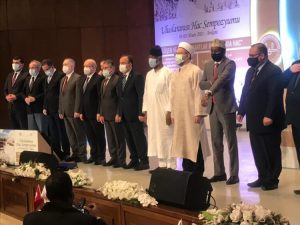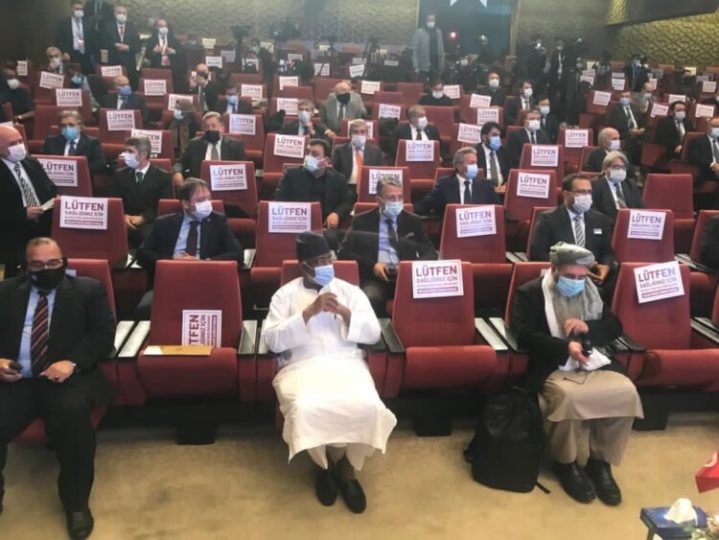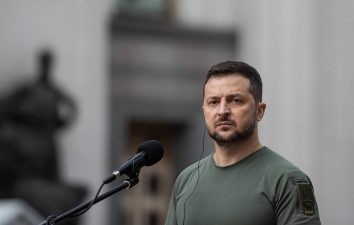*As Islamic scholars across nations discuss Hajj rituals amidst pandemic experience
“We pray to Allah that this pandemic will be over. Hajj is a symbol of unity for the faithful. There is no other form of prayer that brings together such multitude of people from different races, languages, countries. The pandemic deprived us of this,” Chairman, Turkish Presidency of Religious Affairs (Diyanet), Prof. Ali Erbaş, said.
The Chairman and Chief Executive Officer, National Hajj Commission of Nigeria, NAHCON, Alhaji Zikrullah Kunle Hassan, is in Ankara, the capital city of Turkey, leading the Nigerian delegation at the 2021 International Hajj Symposium.
The event, which started on Thursday 1 April 2021 and organised by the Presidency of Religious Affairs (Diyanet) under the Chairmanship of His Excellency Prof. Ali Erbaş, the Turkish Minister of Religious Affairs, is expected to end on Saturday 3 April 2021.
Accompanying number Hajj officer in the country are the NAHCON’s Acting Secretary, Alhaji Ahmad Maigari, and Special Assistant Technical, Dr. Danbaba Haruna, among others.
Aside Turkish, scholars from Sudan, Kuwait Afghanistan, Germany, Malaysia, Canada and Pakistan are also attending the symposium, where they will be discussing how the sacred pilgrimage held every year in Saudi Arabia has changed amid the coronavirus pandemic, as well as other topics relating to the holy voyage, including women’s health and the economy.
Titled “Hajj In the Context of Changing and Developing Conditions,” the event is coming at a time when Hajj will be held in a limited capacity.
In his opening speech, the Chairman of Diyanet, Prof Ali Erbaş, underlined that the idea of the symposium was to bring a “new perspective” to Hajj and its organisation in the light of new age that Muslims find themselves.
“The symposium will discuss every aspect of hajj, from fiqh (Islamic jurisprudence) dimension to its sociological impact, cultural reflections to health and education. It will shed light on development of hajj organizations since the early days of Islam. It will seek answers to contemporary challenges to organizing hajj. I hope it will also offer a comprehensive response to assess the pilgrimage at the time of pandemic,” Erbaş said.
He noted that it had been one year since the pandemic began and few were able to perform the pilgrimage last year, adding that since February 2020, people from a handful of countries were allowed to perform Umrah, the lesser pilgrimage.
“We pray to Allah that this pandemic will be over. Hajj is a symbol of unity for the faithful. There is no other form of prayer that brings together such multitude of people from different races, languages, countries. The pandemic deprived us of this,” he expressed.
Among the topics being discussed at the event are the children’s pilgrimage, the time of stoning the devil (a ritual which is part of the pilgrimage), women’s hajj and umrah in the context of privacy, objectives of religious laws on hajj cancelled during the epidemic, hajj organization in free market conditions and the history of hajj practices.
Other photographs from the ongoing event below:
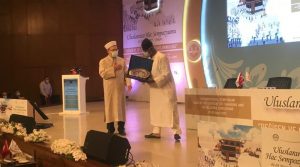
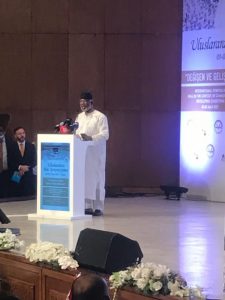
Alhaji Zikrullah Kunle Hassan, Chairman/CEO, National Hajj Commission of Nigeria, NAHCON, delivering the statement of Nigeria at the international event.
